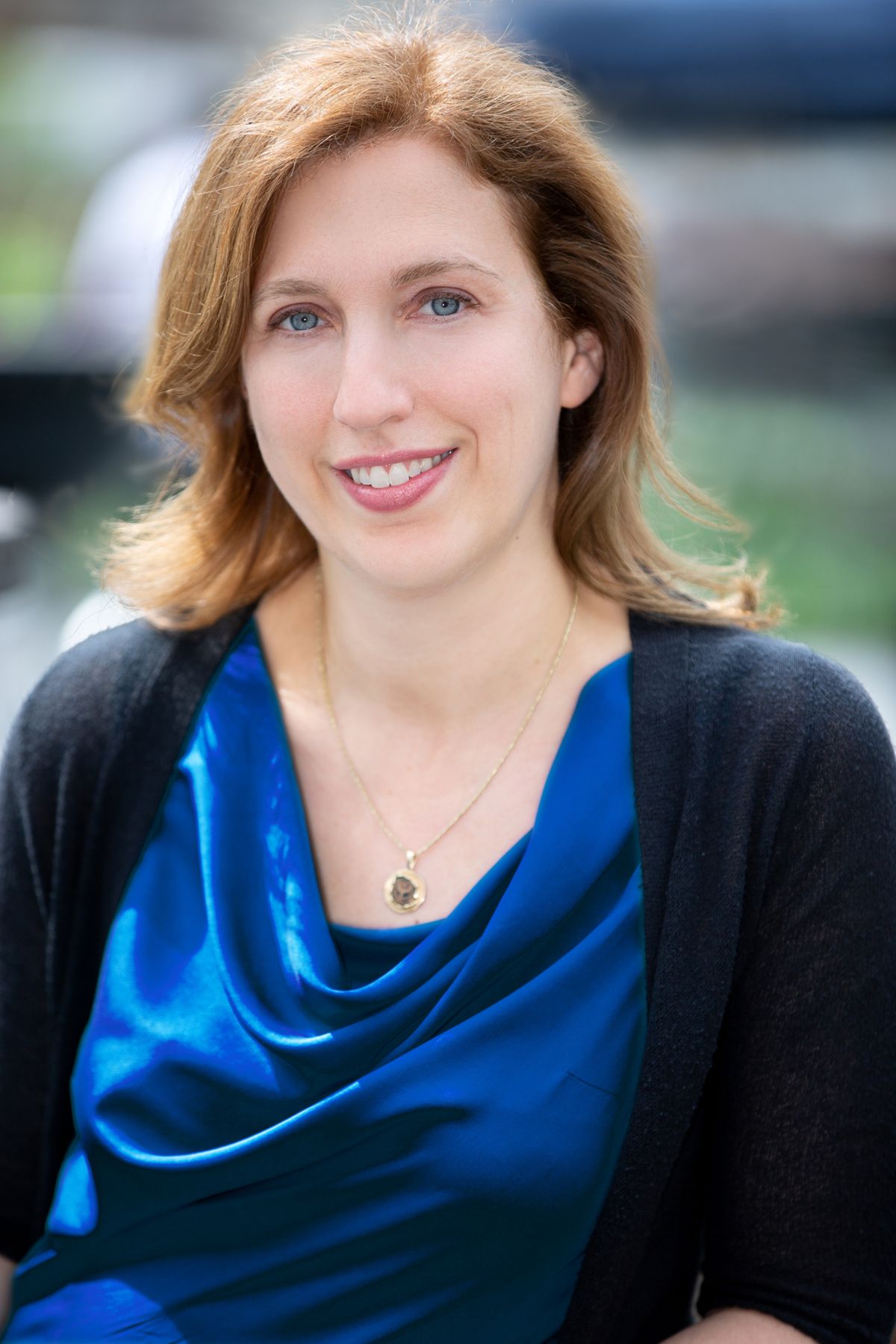Dara Horn Speaks On Antisemitism and Israel
Dara Horn, author of “People Love Dead Jews,” discussed how people often prefer to talk about historical antisemitism, or dead Jews, over contemporary antisemitism. She argued that it is because others feel more comfortable when Jews have erased parts of their identity or are powerless.

Dara Horn, author of 2021 National Jewish Book Award winner “People Love Dead Jews,” gave a talk in Stirn Auditorium titled “Antisemitism and Education” on April 17.
Horn, who is the author of six bestselling books, also has had an illustrious career in Hebrew literature and Jewish-American advocacy. She notably served on former Harvard President Claudine Gay’s Antisemitism Advisory Committee, and has taught at Sarah Lawrence College, Yeshiva University, and Harvard, where she was the Gerald Weinstock Visiting Professor in Jewish Studies.
“Antisemitism and Education” was the third installment of the President’s Office speaker series highlighting the U.S. domestic ramifications of Israel’s war on Palestine. The talk centered on myths surrounding antisemitism and increasing tensions on America’s elite college campuses. Horn questioned why Jewish Americans felt the need to erase their identities to make others more comfortable and added that the mainstream consciousness only honors Jewishness when it is powerless or as Holocaust victims.
“People tell stories about dead Jews that make them feel better about themselves [and] living Jews have to erase themselves in order to gain public respect … we don’t want to distract people from the humanity of the nice Jews, the dead ones — not the yucky ones, doing gross things like practicing Judaism,” Horn said.
Horn added that antisemitism has historically been not a hatred of ignorance, but a hatred of calculated scapegoating. She pointed to many examples of conspiracies in history where Jews were described by highly educated leaders with the adjectives of the enemy, like “greedy capitalists” for communist societies and “scheming communists” for capitalist societies. This resulted in massive violence against Jewish populations.
“Jews become this blank screen onto which societies project whatever they consider evil,” Horn said. “And what that means is that Jews themselves cause antisemitism just by existing … what is most amazing about these examples is how smart these [leading antisemites] are and that is by design, because societies are shaped by their thought leaders.”
A conversation facilitated by Lawrence Douglas, professor of Law, Jurisprudence and Social Thought, followed the talk.
Douglas’ first question touched on the debate surrounding the “notion of treating [Israel] as the settler colonial [state]” and whether that notion was comparable to previously discussed antisemitic fictions such as blood libel and the Protocol of the Elders of Zion.
Horn denounced the idea of Israel as a settler colonial state and traced the idea’s history to Soviet propaganda, which labeled Jews “racist colonialist oppressors.”
Horn said that some people change their minds about Israel after being presented with her perspective.
“Not the people who are yelling these slogans online or in public … they’re not going to consider changing their mind. There [however] is a lot of people who just don’t know anything … And this is an opportunity [for educators] … There is so much more ignorance than malice,” Horn said.
Douglas asked about the “political uses of the charge of genocide” to describe Israel’s actions against Palestinians considering that it draws “an equivalence between Israel and Nazi Germany.”
Horn said that the genocide label is a “deliberate” reinforcement of imperial narratives on Jewish peoples.
“It’s what the empire wants to happen. It’s what they have done,” Horn said. “When Americans lecture Israelis about settler colonialism, like you live in a place called Massachusetts. What are you doing there? … To me, that was most remarkable about this ‘Israel’s committing genocide’ book.”
Douglas, who is currently teaching a class on law and war, added that: “not every war crime is an act of genocide.”
Students had varying familiarity with the topic, Horn’s work, and their reasons for attending. Some saw the talk as an opportunity to learn more about a subject that is avoided in their everyday lives.
“I haven’t talked about [antisemitism] with anyone or been able to get in catharsis on that subject … I didn’t know anything about the speaker, I just wanted to hear more about the problem,” said Jakob Littell ’24.
For others, Horn has been a guiding voice before and since the Oct. 7 Hamas attack.
“I didn’t really think antisemitism was a thing until I came to Amherst so I obviously was very interested in coming,” said Liliana DeLise ’24, president of Hillel. “I think a lot of us Jewish students have followed Dara [Horn’s] work since before Oct. 7.”
Both students, nonetheless, took away the importance of open dialogue from Horn’s lecture.
“I think overall the more we can have dialogue with our peers of all different ideas which is what she [Horn] was saying at the end,” DeLise said.





Comments ()